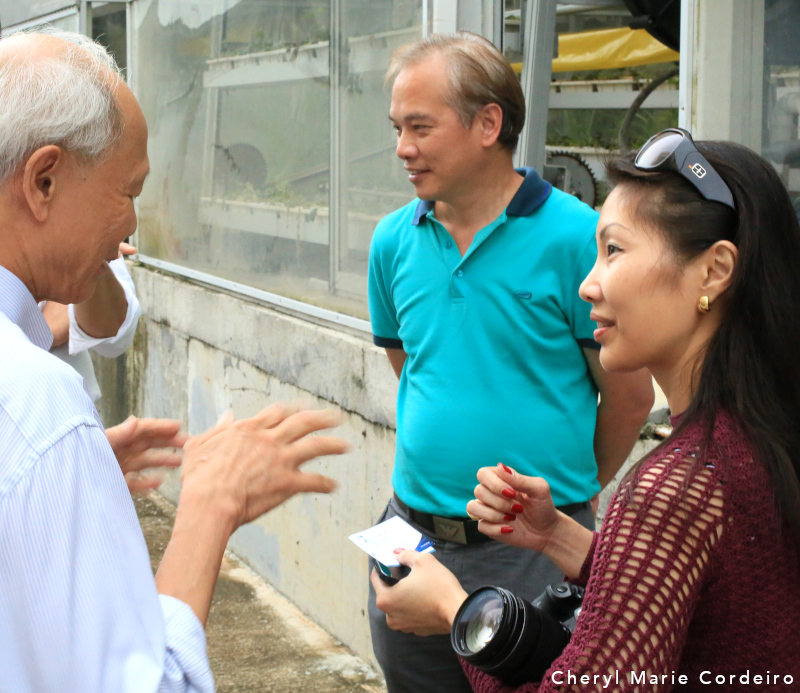From 2016, standing in a group discussion with Jack Ng, who is an engineer, and the Founder of Sky Greens Singapore. Sky Greens was founded in 2012.
Text & Photo © JE Nilsson & CM Cordeiro 2021
The current Horizon Europe Work Programme 2021-2022 for Food, Bioeconomy Natural Resources, Agriculture and Environment [1] acknowledges a need to address the complex relationships between energy use in food systems, food system productivity and energy resource constraints. Product type, mode of transport, food waste, energy-related food system greenhouse gas (GHG) emissions, and energy efficiencies in geographies of production along with economies of scale are some of the interacting variables in the food-energy network [2,3]
In Sweden, about 26% of the greenhouse gases emitted come from agricultural activities [2]. Traditional farming practices and food production techniques concurrent with urbanization and globalization are energy intensive. With concurrent urbanization, globalization and changes in demography, the importance of energy use in food systems has become a global food security concern [3], particularly when some studies have shown that crop yields increase in close association with energy inputs [4].
The European regional concerns reminded me of a visit to Sky Greens in Singapore in 2016. I was in Singapore to attend the Responsible Business Forum conference held at Marina Bay Sands, and I had the opportunity too at the time, to visit the world´s first low carbon, hydraulic driven vertical vegetable farm and meet its Founder, Jack Ng.
